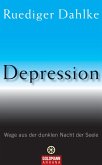With a comprehensive introduction tracing the historical development of hypnosis, and the cultural and scientific practices that prevailed at various times, this book brings together the most important previously published papers that reveal how a scientific approach to understanding hypnosis as a psychological phenomenon has emerged over the last 70 years. The volume also includes a selection of reports on clinical applications and on legal and forensic issues.
Dieser Download kann aus rechtlichen Gründen nur mit Rechnungsadresse in A, B, BG, CY, CZ, D, DK, EW, E, FIN, F, GR, HR, H, IRL, I, LT, L, LR, M, NL, PL, P, R, S, SLO, SK ausgeliefert werden.









